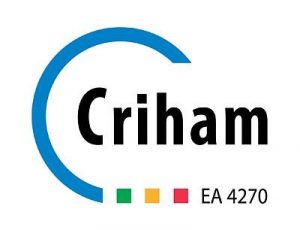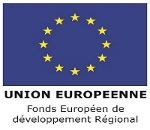CRIHAM – Interdisciplinary Research Centre for History, History of Art and Musicology
EA 4270
Presentation
Anne Massoni – Director
Tel. : + 33 (0)5 5 55 43 57 27
Adress : FLSH : DEPARTEMENT D’HISTOIRE
39E Rue CAMILLE GUERIN
87036 LIMOGES CEDEX
> WEBSITE
Administrative supervision : University of Limoges
Local Institute : SHS
Doctoral school : ED 612 – Humanities
Associated Research Master : Histoire – Pouvoir, Sociétés, territoires
Key figures (30/06/2017)
Engineers, Technicians, Administratif staff : 2,8 ETP
Doctoral Students : 11
Accreditated to direct research (HDR) : 4
Scientific Publication (2012-2017)
Books : 24
Book chapters : 250
Conference presentations : > 350
Publications edited : 46
Thesis defended :
> WEBSITE PUBLICATION
Current projects
- ANR :
Col&mon (Collegiate Churches and Monasteries from the Carolingian Reform to the Council of Trent (816-1563) – Coordinator
Crisis (Imperial and provincial responses to environmental and economic challenges on Rome’s frontier in the Egyptian desert (First-Sixth c. AD) – Coordinator
- AAP Nouvelle-Aquitaine :
Nouvelle-Aquitaine et Outre-Mer (V. Cousseau), Monasticon Aquitaniae (A. Massoni), Atlas historique de la Nouvelle-Aquitaine (R. Crouzevialle, A. Massoni, F. Cerbelaud, J. Morel)
Research
CRIHAM’s researches revolve around three main areas of research :
Emotions, creation Prematurely part of neurosciences, psychanalysis and psychology, these two terms were more recently taken into consideration by historical sciences through emotion’s historicity. On the one hand, it pursues a deeper understanding of the relationship between emotions and justice, i.e. mass angers and rallying, as well as the history of the body, of brutality and physical violence. On the other hand, it deals with the representation of emotions aroused by images or live performing Arts, as well as these aroused by music or attending to a concert, using notions as collective memory or sensitive culture.
Environment, territories, circulations Mainly focused on environmental history and relationships between populations and their territories, this field of research includes various issues regarding an environmental actor which cannot be reduced to natural environment. Environment is the frame were history takes place, where Humans circulate and adapt themselves in interaction with societies. Disagreements, conflicts, circulations and destructions follow on from environment. These fields of investigation enable rich interdisciplinary collaborations between Humanities (Geography, Economical sciences, Law, Anthropology and Ethnology), as well as earth and life sciences (Biology, Geology).
Powers, Institutions, Conflicts In a society where the forms of political powers and the question of its efficiency or legitimacy are more and more in the hot seat, extending researches interested in public authorities and institutions turns out necessary. These political topics persistently nourish our social debate where diverse and new forms of conflict complicate the understanding of social issues. We are committed to a new political history, bringing together institutional, political and judicial dimensions, unholy but also religious.
> Research Themes : Powers ; Institutions ; Conflicts Environment ; Territories ; Circulations Creation ; Feelings
> Keywords : History ; Ancient Egypt ; Political History ; Institutional History ; Economic and Social History ; Religious History ; Limousin Cultural History ; Environment ; Digital Humanities
Equipment / Technical resources
Specialized documentary collection
Partnerships
National University Partnerships : University of Poitiers ; University of Paris (UMR LAMOP) ; University Paris West La Défense, French Historic Mission in Germany
International University Partnerships : Université libre de Berlin , Mission historique française en Allemagne, Université de Tubingen, Université de Munich, Regesta Imperii, Université de Mayence (Allemagne) ; Université d’Utrecht (Pays-Bas) ; Académie autrichienne des Sciences (Vienne, Autriche) ; Casa de Velasquez, Universitat de València, Universitat de Barcelona, Universitat de Girona (Espagne) ; Université de Charlotte, New York University – Institute for the Study of the Ancient World, Université de Princeton (Etats-Unis) ; Politecnico di Milano (Italie) ; American University in Cairo (Egypte) ; Institut National des Sciences de l’Archéologie et du Patrimoine (Rabat, Maroc) ; Université Alger (Algérie)




